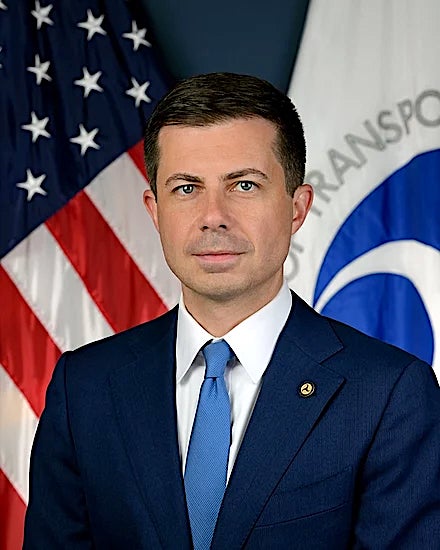Secretary of the U.S. Department of Transportation (DOT) Pete Buttigieg sent a letter yesterday to the heads of the 10 largest airlines in the country reminding them of their obligations to make cash refunds to passengers. The letter went out on the heels of a court ruling that afforded airlines at least a temporary respite from what the airline lobby called “irreparable harm” from another DOT mandate to airlines to clarify passenger information on ticket surcharges for baggage and schedule changes—so called “junk fees” that have become a target of the Biden administration.
Buttigieg responded to the airlines’ legal action: “The airline industry lobby is trying to tie this up with lawsuits, but we will not back down from protecting passengers. Airlines are simply wrong to argue that merely having to disclose their fees would ‘irreparably harm’ them. It’s common sense,” he said.
On the issue of airlines’ obligations on refunds, Buttigieg wrote in the letter: “As we emerge from the air travel disruptions caused by the global technology outage earlier this month and the busy summer travel season continues, I want to ensure there is clarity and a shared understanding when it comes to the rights of air travelers and the obligations of U.S. and foreign airlines. The operational challenges of this month have served as a reminder of the importance of passenger protections—which now include a legal requirement to clearly and proactively inform customers about their right to a refund and provide prompt cash refunds when consumers do not opt to accept travel alternatives following a cancellation or major delay.”
A DOT press release summarized the department’s expectations that airlines “clearly and proactively” inform passengers of their right to a refund when a flight is canceled or significantly changed. Also, cash refunds, rather than vouchers or credits, must be dispensed automatically. Airlines are required to “make it easy” for passengers to rebook at no charge and receive meals, hotel accommodations and/or transportation to/from hotels during “controllable disruptions.” Finally, if a passenger decides to accept a voucher or credit, that credit must remain in effect for at least five years.
Buttigieg concluded his letter: “[We] are encouraged by the historically high levels of demand for passenger air travel being served by airlines in America today. A thriving U.S. commercial aviation sector is good for all Americans, and all of our regulatory and enforcement activities are designed to ensure that this sector thrives on the basis of excellent safety, fair and vigorous competition, and strong customer service.”


